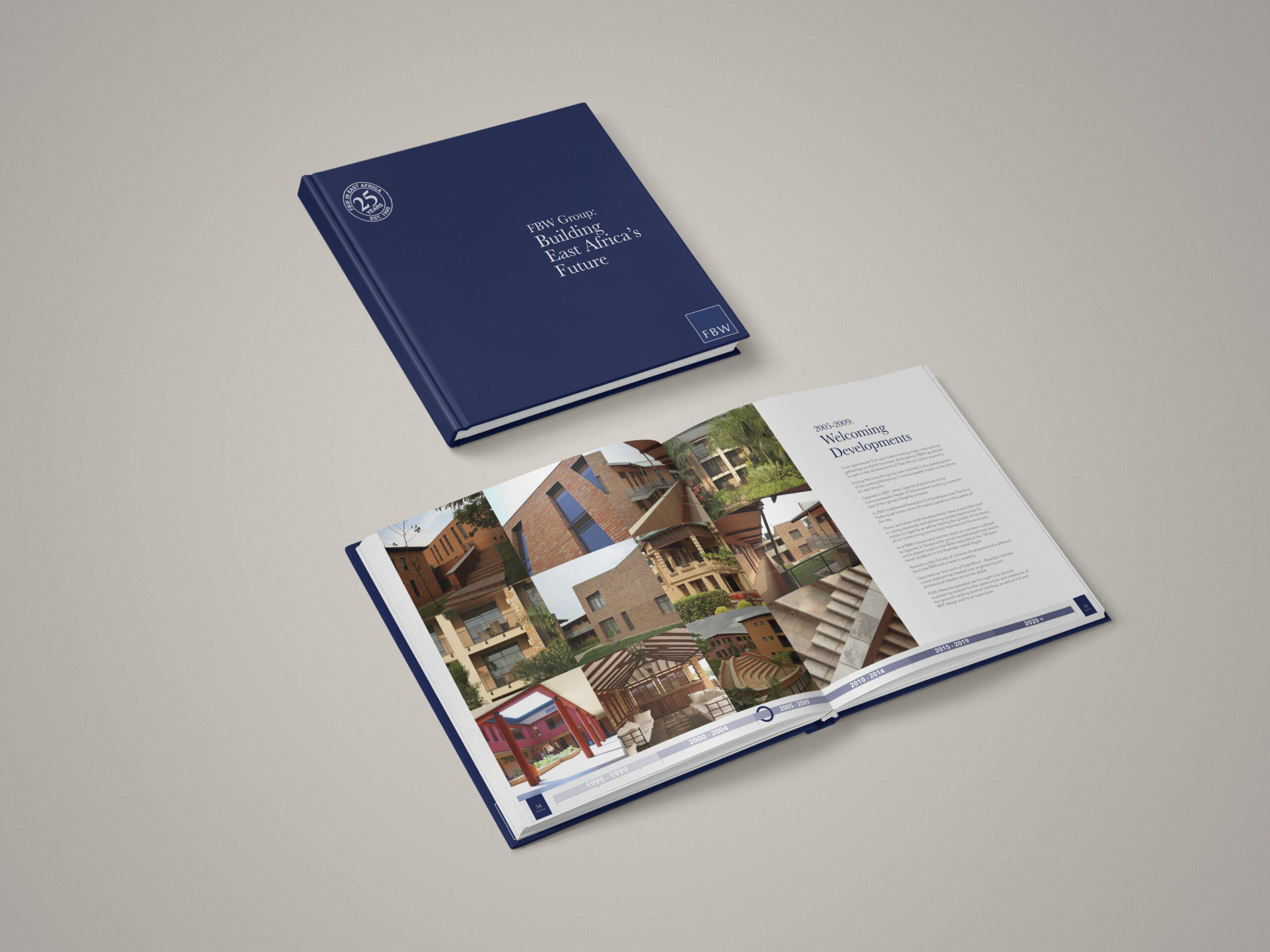 In the latest excerpt from the book ‘Building East Africa’s Future’, which chronicles the first 25 years of FBW Group’s history, we look at the group’s growth in Kenya and one of its early health projects in Uganda
In the latest excerpt from the book ‘Building East Africa’s Future’, which chronicles the first 25 years of FBW Group’s history, we look at the group’s growth in Kenya and one of its early health projects in Uganda
2015-2020
This period of FBW’s history saw the opening of our Kenyan office in the capital Nairobi in 2015.
It was the start of a growing success story. The office and its team are now established as a major multi-disciplinary practice working to deliver high-quality projects across the country.
These include the School Lane development in Westlands, and the German School and DT Dobie’s showroom in Nairobi.
FBW’s engineering division, which focuses on structural, civil, electrical and mechanical works, also continues to deliver for clients including globally-known brands.
The Kenyan team has also worked with Fusion Capital, one of the region’s most successful real estate developers, to create a low-cost, affordable housing strategy in Kenya.
Together, Fusion and FBW worked to put together a large-scale, low-cost housing strategy to deliver affordable homes for people in Kenya earning less than US$500 a month.
As part of its continuing commitment to ‘build green’ and to advocate for green buildings, FBW is also a member of the Kenyan Green Building Society, part of the World Green Building Council. It is also a champion of the EDGE green building certification system.
The expansion of FBW across East Africa has been, as group chairman Geoff Wilks explains, a well-thought-out strategy.
He says: “From 2005 onwards it has been our ambition to be a regionally-based business and to have a foothold in each of the countries in East Africa. We’ve got boots on the ground and we have employed and developed local people and created capacity wherever we are.”
He adds: “We can adapt to circumstances quickly. We’ve very carefully plotted our growth and the order in which we’ve opened new offices and we can deploy our staff where they are needed. It gives us that cutting edge.”

Virika Hospital Out Building
Virika Hospital, Fort Portal, Uganda
Holy Family Virika Hospital is a community hospital in Fort Portal, in the Kabarole District of Western Uganda.
A private, non-profit, faith-based medical site, owned by the Roman Catholic Diocese of Fort Portal, its history can be traced to humble beginnings as a dispensary founded by an order of nuns in 1911.
On February 6, 1994, Fort Portal, was hit by a heavy earthquake measuring 6.2 on the Richter scale, leaving 65 per cent of the hospital buildings beyond economical repair.
Subsequent tremors and successive subsiding resulted in further damage, to an extent that only the surgical department and the nurse’s hostel were found in a repairable state. All other buildings were condemned.
FBW led the project to reconstruct the 250-bed general hospital, using all its expertise in architecture as well as structural and mechanical and electrical engineering.
 The remit we received included the preparation of new masterplan and building designs and the phased development of a series of earthquake resistant structures using locally available materials.
The remit we received included the preparation of new masterplan and building designs and the phased development of a series of earthquake resistant structures using locally available materials.
The hospital was reconstructed in four phases over five years, from 1997 to 2002, and included new wards and an emergency department.
Because the site is earthquake prone, basic design principles were followed to simplify structures and construction methods.
The project incorporated a large element of training and developing local people using a nearby vocational school, the St Joseph’s Technical Institute, as constructor.

